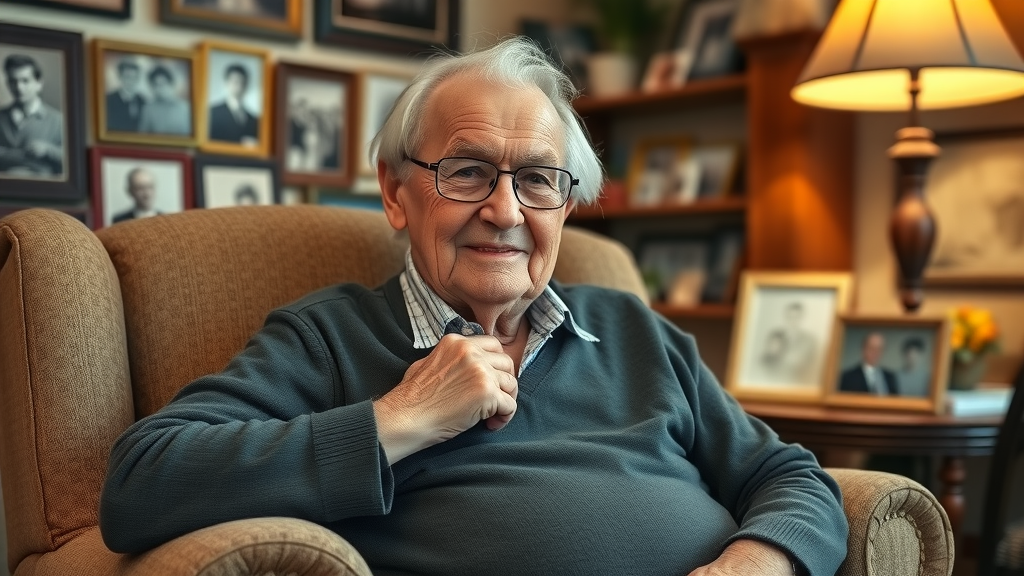Did you know that the number of people living beyond 100 will increase eightfold by 2050, according to United Nations projections? Longevity research is shattering previous assumptions about how long humans can live—and more importantly, how well. Whether you dream of watching your great-great-grandchildren grow or simply want to live each year with more energy, the new era of aging research promises to upend our understanding of what’s possible for human longevity . Let’s dive into the science, the hope, and the genuine controversy behind today’s most exciting advances.
Why Longevity Research Is Captivating the World: A Surprising Look at Aging and Longevity
The fascination with longevity research isn’t just a scientific trend—it’s a global movement. As the world’s population ages, curiosity about the secrets of healthy aging and the science of human longevity grows. New discoveries are allowing researchers to look far deeper into the biology of aging and develop tools that could one day extend the healthy life span of billions of people. Meanwhile, older adults and their families are searching for proven ways to increase life expectancy and maintain good health as they age.
People once believed aging was an unavoidable decline, but aging research now uncovers specific causes of deterioration, from risk factors at the cellular level to lifestyle choices that fuel chronic disease . Breakthroughs in aging cell biology, genetics, and epigenetics are rapidly changing how we understand and fight the aging process . Longevity research also fuels debate—while some hail new therapies as revolutionary, others warn of hype outpacing evidence. Yet, hope remains high that the dream of a longer, healthier human life is closer than ever before.

What You'll Gain From This Exploration Into Longevity Research
- Grasp the latest developments in longevity research
- Unveil how emerging therapies may impact healthy aging
- Evaluate controversial practices and supplements for human longevity
- Discover practical insights to extend life and well-being
The State of Longevity Research: Scientific Foundation and Emerging Opportunities
Modern longevity research stands on decades of aging research that has uncovered more about why and how we age than ever before. The field now explores areas from biological age —how “old” your body truly is—to interventions targeting the aging process itself. Opportunities for extending human life have never been greater, with advancements in clinical trials and technologies that could revolutionize public health .
Opportunities abound: clinical studies investigate drugs that may target biological aging , and diet and lifestyle interventions are continually tested for the ability to extend life . This dynamic foundation sets the stage for breakthroughs once considered science fiction—like rejuvenating aging cell s, or even resetting the human body’s aging clock at the genetic level.
As research continues to uncover the intricate mechanisms behind aging, it’s becoming clear that factors like immune health and metabolism play a pivotal role in how we age. For a closer look at how these systems interact to influence longevity, you might find it valuable to explore the relationship between immune health, metabolism, and extended lifespan in the context of the latest scientific findings.
Aging Research and Human Longevity: Understanding the Underpinnings
Aging research delves deep into the root causes of age-related decline. Scientists study how genetics , environmental exposures, and lifestyle choices interact to determine both chronological age (your actual years) and biological age (how your body functions). They examine damage within the body’s cells, including factors that cause aging cell breakdown and set off chronic inflammation—two central risk factors for poor human health with aging.
Human longevity is also shaped by how well our bodies resist chronic disease and repair daily damage. Understanding the web of influences on aging and longevity helps researchers design interventions to slow or reverse age-related decline, opening the door to a potential future where people routinely thrive well into their nineties and beyond.

Healthy Aging and the Pursuit of Extended Life Expectancy
Today’s healthy aging research focuses on how to extend life in ways that preserve quality, not just quantity. Experts recognize that increasing life expectancy without considering physical, mental, and social well-being would miss the true goal of health and longevity . As science continues to reveal the many drivers behind human longevity , more older adults seek evidence-based strategies to live long in good health .
From nutrition and regular exercise to social engagement, the links between lifestyle and extended lifespan have never been clearer. Studies of so-called “blue zones”—regions with exceptionally high rates of centenarians—show the practical potential in daily habits that anyone can adopt, right now.
Defining Healthy Longevity: From Biological Age to Societal Impact
Healthy longevity goes far beyond a number on a calendar. It means thriving—mentally, physically, and socially—while maintaining low risk factors for chronic disease . The movement to track biological age in addition to chronological age allows experts to predict health outcomes and target interventions more precisely. These advances will not only transform individual lives, but reshape societies as the number of vigorous, engaged older adults multiplies.

Startling Life Expectancy Trends and What Longevity Research Reveals
A century ago, average global life expectancy hovered near 40 years. Today, thanks to public health gains, medical advances, and a sharper understanding of risk factors , people regularly reach their seventies and beyond. Yet, modern longevity research predicts that traditional limits to the human lifespan are being transcended in real time—including predictions of thriving centenarian populations and the potential for further gains.
Breakthroughs in aging research could push these boundaries even further. As therapies targeting aging cell dysfunction, inflammaging, and biological aging come into focus, the next generation may experience longer, more vibrant lives than previously thought possible.
| Year/Period | Average Global Life Expectancy | Main Drivers of Change |
|---|---|---|
| 1900 | ~31 years | Sanitation, reduced child mortality |
| 1950 | ~48 years | Vaccines, antibiotics, nutrition |
| 2000 | ~66 years | Healthcare improvements, lifestyle changes |
| 2020 | ~73 years | Chronic disease management, healthy aging research |
| 2050 (Projection) | 80+ years | Biological interventions, longevity research breakthroughs |
How Longevity Research Is Redefining What It Means to Be an Older Adult
"Longevity research is shifting our expectations, challenging what we once believed was possible for older adults." — Leading Aging Researcher
Today’s older adults are breaking stereotypes—they’re starting new businesses, competing in marathons, and playing vital roles in their communities. The impact of longevity research has unleashed new models for healthy aging , emphasizing lifelong learning, social connection, and purpose. In many cultures, the definition of “old” is being reimagined, echoing the advances seen in both aging research and public health policy.

Aging Research Milestones: The Science Powering Longevity Research
Major milestones in aging research have paved the way for a deeper understanding of the biology of aging . Landmarks—like discovering the role of cellular senescence, the genetics of long-lived species, and the molecular pathways that control lifespan—have spawned new therapies under intense investigation. Let’s dive into a few of the most transformative areas.
Groundbreaking Studies on Intermittent Fasting, Dietary Restriction, and Extended Lifespan
Numerous human studies and animal trials suggest that intermittent fasting and caloric restriction can increase life span and reduce major risk factors for disease. These eating patterns appear to activate survival pathways that improve cells’ resilience and delay the aging process . While clinical trials are ongoing, early evidence shows these dietary interventions may help extend life by mimicking natural “repair” mechanisms encoded deep in our evolution.
Despite excitement over these findings, many experts urge caution for older adults and those with chronic conditions. Circadian rhythms, nutrition content, and individual response must all be considered, with expert guidance critical in translating research into practical recommendations.

The Role of Genetics, Epigenetics, and Biological Age in Human Longevity
Advances in genetics have shown that up to 25% of life expectancy variation comes from inherited factors. Yet, environmental influences and epigenetics —chemical modifications that change gene expression—are now known to play an even larger role in determining biological age and human longevity .
Scientists are developing tests that measure biological markers to pinpoint an individual’s real risk for age-related diseases. This allows more targeted, personalized strategies to extend lifespan and improve human health , bringing hope to anyone wanting to age with less risk and greater vitality.
Transformative Therapies: Senolytics, Stem Cells, and Targeting Aging Pathways
A new generation of therapies focuses on clearing senescent “zombie” cells that accumulate with age, using drugs called senolytics. Other interventions include stem cell treatments to rejuvenate tissues, gene editing, and molecules that target known “aging” pathways like mTOR and sirtuins. While many of these therapies are in clinical trials , some already show promise for reducing risk factors for chronic disease and enhancing healthy life span .
As with all breakthroughs, real-world safety and efficacy require far more testing. Yet, the excitement is justified: these therapies may one day revolutionize not only human longevity but the very experience of growing older.
Healthy Aging: Realistic Strategies to Extend Life and Well-being
Want to put longevity research into action? Recent discoveries highlight practical steps anyone can take. Evidence-based approaches are key for older adults aiming to boost healthy aging and maximize life span , regardless of genetics. What do these strategies look like day to day?
- Evidence-based approaches to healthy aging
- Daily routines supporting longevity research findings
- Successful case studies from older adult populations
The foundation is simple but powerful—regular exercise, a plant-forward diet, stress management, and staying socially active. Even more, small daily routines like stretching, mindfulness practice, and intellectual engagement reinforce the findings of aging research and are linked to decreased risk factors for chronic disease . Populations in blue zones, which regularly produce centenarians, demonstrate the remarkable impact of these basic habits.
How Older Adults Can Leverage Longevity Research for Practical Gains
"The pursuit of healthy longevity is not just about living longer—it’s about living better, at any age." — Healthy Aging Expert
Real change occurs when older adults take ownership of their health using insights from longevity research . Employing proven, science-backed routines is the most reliable way to extend lifespan and maintain good health . Tracking your own biological age , monitoring key health metrics, and meeting with knowledgeable clinicians are all ways to capitalize on the latest research for real-world results.

Controversial Breakthroughs in Longevity Research: Hope or Hype?
Not every trend in longevity research lives up to its promise. With the explosion of biohacking, supplements, and social media “miracle cures,” many older adults face mixed messages about what truly works to extend life . Distinguishing well-supported advances from hype remains critical as the marketplace for anti-aging solutions grows.
While the search for a legitimate fountain of youth continues, experts urge a healthy skepticism regarding therapies that lack large-scale human studies or repeatable clinical trials . Sorting hope from hype keeps the field honest and ensures only sound evidence guides public health.
Intermittent Fasting: Conclusive Evidence or Inconclusive Claims?
Intermittent fasting has attracted global attention for its potential to reverse biological age and improve markers of healthy aging . Despite animal studies and some small-scale clinical trials showing promise, the long-term impact in humans remains hotly debated. Some older adults benefit greatly, but for others, fasting can introduce new risk factors .
The consensus from leading aging research organizations: intermittent fasting offers potential, but we need more multi-year, diverse human studies to confirm its ability to extend healthy human life .
Biohacking and Supplements: Do They Really Extend Life?
- Popular supplements investigated in longevity research
- Potential risks and rewards
- Insights from recent aging research
Supplements like NAD boosters, resveratrol, and metformin are highly publicized, but the evidence supporting their use remains mixed. While some show small benefits for biological aging in animal models, most lack the rigorous clinical trial data needed for human recommendations. Risks such as interactions with prescription drugs or overuse abound. Relying on dietary patterns validated by research, however, is a safer bet for now.

Can Longevity Research Really Extend Life? My Take on the Science and Its Limitations
As someone passionate about aging research , I believe we’re at the most exciting—yet humbling—moment in the history of human longevity . For all the genuine gains made, much about the aging process remains a mystery. While advances can extend life and reduce risk factors for chronic disease, radical breakthroughs are elusive and often benefit those who combine science with commonsense healthy living.
The biggest lesson from centenarian studies : resilience, adaptability, and positive relationships are as influential as any supplement or intervention. Scientific optimism must always balance with patient skepticism—a reminder that every clinical trial is not a magic bullet.
Balancing Optimism with Skepticism: Human Longevity Lessons From Centenarian Studies
Centenarians often thrive by blending genetic luck with lifelong attention to diet, movement, and staying socially engaged. These older adults are proof that while breakthroughs hold promise, tried-and-true approaches to healthy aging are timeless. Some centenarians credit their longevity to optimism or purpose, suggesting that the science of human longevity includes emotional well-being as much as biology.
The real key: remain open to new findings but implement changes rooted in proven behavioral science. That’s how healthy longevity is built, day by day.
Future of Aging and Longevity: Hopes and Caveats From Ongoing Research
"Not every longevity breakthrough will bear fruit, but every experiment adds a vital piece to the aging research puzzle." — Opinion
Looking ahead, I expect a fusion of digital health tracking, genetics, and therapeutics to further personalize longevity research solutions. Yet, most leaps forward are likely to be incremental—more about finding what helps each of us extend life with purpose than discovering a universal cure. The best advice? Stay curious, stay critical, and keep moving—literally and figuratively—toward healthier aging.
People Also Ask: Addressing Key Longevity Research Questions
What are the 7 keys to longevity?

Experts point to seven main pillars tied to human longevity : a balanced diet, regular movement, meaningful relationships, stress management, quality sleep, avoiding harmful substances, and engaging in lifelong learning. These behaviors are supported by aging research and contribute to healthy life span by reducing disease risk factors .
What are the 5 P's of longevity?
The “5 P’s of longevity” are: Purpose, Physical activity, Positive relationships, Proper nutrition, and Prevention (like screening and vaccinations). Emphasizing these ensures that you’re building habits scientifically linked to healthy aging and increased life expectancy .
What is the #1 predictor of longevity?

Research routinely identifies strong social connections as the leading predictor of extended lifespan and thriving older adults . Those with supportive families, friendships, or communities tend to outlive peers, regardless of other health factors.
What is the number one supplement for longevity?
There’s no universal “#1 supplement” for longevity research —the science is still evolving. Popular options like vitamin D, omega-3s, and certain antioxidants show promise in some studies but aren’t guaranteed to extend life . It’s best to focus on whole foods, evidence-based lifestyle habits, and to consult professionals before starting any supplement regimen.
Key Takeaways: The Path Forward for Longevity Research and Aging Research
- Longevity research has already yielded practical advances for healthy aging
- Emerging discoveries could further extend life expectancy for future generations
- Caution remains vital as not all breakthroughs will result in real-world solutions
Frequently Asked Questions About Longevity Research and Aging
-
How close are we to a cure for aging?
While science continues to unlock key mechanisms of aging, a true “cure” doesn’t yet exist. Most advances focus on slowing or reversing parts of the aging process—especially chronic disease risk factors—but a complete cure is still years or decades away. -
Which lifestyle habits are most recommended by healthy longevity experts?
Regular movement, plant-centric diets, sleep optimization, healthy social connections, avoidance of smoking or excessive alcohol, and managing stress are most frequently recommended by healthy longevity researchers. -
Do most residents of blue zones practice intermittent fasting?
Many blue zone populations naturally have extended periods without eating due to cultural or traditional meal patterns, similar to intermittent fasting. However, their main advantage comes from balanced diets, regular movement, and tight-knit communities. -
What role does genetics play in extended lifespan?
Genetics accounts for roughly 20–25% of the variance in human life span, but lifestyle, environment, and social factors have a larger influence on life expectancy and healthy aging outcomes.
Final Thoughts: My Perspective on the Promises and Pitfalls of Longevity Research
Embrace the discoveries of longevity research, but stay grounded—sustainable habits and a curious attitude will always be your strongest allies in pursuing a longer, healthier life.
If you’re inspired to take your understanding of longevity to the next level, consider exploring the broader landscape of transformative strategies that support healthy living at every stage. Delving into comprehensive longevity science and its practical applications can help you uncover advanced techniques and holistic approaches that go beyond the latest research headlines. By integrating these insights, you’ll be better equipped to make informed choices that align with your personal health goals and long-term well-being. The journey toward a longer, more vibrant life is ongoing—let curiosity and evidence-based action guide your next steps.
Recent advancements in longevity research are reshaping our understanding of aging and potential life extension. The article “Want to Live Longer? Here’s What Works” highlights breakthroughs such as epigenetic reprogramming and the development of drugs like rapamycin, which may slow aging processes. It emphasizes that, despite these innovations, fundamental healthy habits—balanced diet, regular exercise, and sufficient sleep—remain the most effective strategies for extending lifespan. ( kiplinger.com )
Similarly, “Science is closing in on the frailties of old age” discusses how research into genes, enzymes, and existing medications is offering hope for healthier, more active later years. The focus is on improving the quality of life in old age rather than merely extending lifespan, with regular exercise still being a key recommendation. ( ft.com )
For those interested in the latest developments in longevity science, these resources provide valuable insights into both cutting-edge research and practical approaches to healthy aging.
 Add Element
Add Element  Add Row
Add Row 




Write A Comment